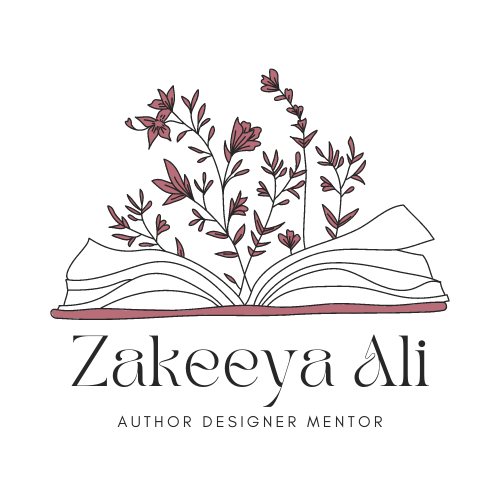Refuting the Argument, “I Must Go to College and Have a Career, What If I’m Abused by my Husband?”
“What if I'm abused by my husband? I have to go to college to earn a stable income!”
How many times have we heard this argument by women?
But let's pause for a moment, because this argument is fundamentally flawed. And I’m here to tell you why.
1. Our rizq (provision) comes from Allah SWT, not from our hands.
This is the ultimate truth. No matter how hard we work or how much we plan, our provision is decreed by our Lord. Our sustenance is not tied to a degree or a job; it is written by our Creator and sometimes comes through people. Allah SWT says in the Quran:
“And there is no creature on earth except that upon Allah is its provision, and He knows its place of dwelling and place of storage. All is in a clear register."
(Surah Hud, 11:6)"And whoever fears Allah – He will make for him a way out. And will provide for him from where he does not expect. And whoever relies upon Allah – then He is sufficient for him."
(Surah At-Talaq, 65:2-3)
The Prophet Muhammad (ﷺ) said:
"If you were to rely upon Allah with reliance due to Him, He would provide for you as He provides for the birds. They go out in the morning with empty stomachs and come back full in the evening."
(Sunan Ibn Majah, 4164)
2. Allah SWT never gives us a burden greater than we can bear.
Every challenge we face in life, including the fear of potential abuse, is something that our Lord knows we can handle. It’s a test of faith, not a call to abandon our Islamic values in pursuit of worldly security. Allah SWT says in the Quran:
"Allah does not burden a soul beyond that it can bear."
(Surah Al-Baqarah, 2:286)
The Prophet Muhammad (ﷺ) said:
"Wondrous is the affair of the believer, for there is good for him in every matter, and this is not the case with anyone except the believer. If he is happy, then he thanks Allah, and there is good for him. If he is harmed, then he shows patience, and there is good for him."
(Sahih Muslim, 2999)3.
3. Have you considered the risks of going to college and working?
Just as you've thought about the risks of not going to college or not having a career, have you thought about the risks associated with these choices?
Let’s be real here.
Women are often told that they need a college degree and a stable job to protect themselves in case their husband turns out to be abusive. But let me ask you this: “How many women do you personally know in the west who are on the streets, destitute, and homeless, simply because they didn’t have a college degree or a job?”
The truth is that this narrative is often exaggerated.
While pursuing higher education and a career may seem like a safeguard, have you considered the potential dangers associated with these environments?
Statistics show a high risk of sexual assault on college campuses. Not to mention the increased likelihood of falling into zina (unlawful relations) and riba (usury)—both of which are serious sins with severe consequences.
The workplace isn't always a safe haven either. There are countless cases of harassment, stalking, and even abuse in professional settings, and in extreme cases it has even led to murder.
Here are some statistics related to the risks associated with college and workplace environments:
1. Sexual Assault on College Campuses
Statistic: According to the U.S. Department of Justice, approximately 13% of all undergraduate and graduate students experience sexual assault or rape through physical force, violence, or incapacitation during their time in college.
Source: U.S. Department of Justice, Campus Climate Survey Validation Study (2016).
2. Risk of Zina (Premarital Relationships) and Riba (Usury) in College
Statistic: A study by the National Center for Education Statistics found that over 60% of college students report having been in a relationship in the past year, highlighting the prevalence of dating culture on campuses.
Source: National Center for Education Statistics.
Statistic: The average student loan debt for college graduates in the U.S. was around $37,000 in 2023, illustrating how easily students can fall into riba (interest-bearing loans).
3. Harassment and Violence in the Workplace
Statistic: A 2021 survey by the Workplace Bullying Institute found that 19% of Americans have experienced abusive conduct at work, and another 19% have witnessed it.
Source: Workplace Bullying Institute, 2021 WBI U.S. Workplace Bullying Survey.
Statistic: According to the Bureau of Labor Statistics, in 2019, there were 454 workplace homicides, with nearly 20% resulting from assaults by work associates.
Source: Bureau of Labor Statistics.
4. Welfare and Support Systems for Women in the West
Statistic: In the United States, the Supplemental Nutrition Assistance Program (SNAP) helps over 42 million Americans, including many women and children, to avoid food insecurity.
Source: U.S. Department of Agriculture.
Statistic: According to the Center on Budget and Policy Priorities, over 7.8 million people received housing assistance in 2023, with Section 8 Housing Choice Vouchers being one of the most common forms of support.
So why are these risks rarely discussed? And why is the focus only on husbands being abusive? Is there an agenda in play?
Abuse can come from many sources
Fellow students, teachers, bosses, and coworkers, and even parents can also be perpetrators of abuse. The reason that society’s narrative is constantly centered around the husband being the only potential abuser for a woman is because of feminism and liberalism.
These isms are staight from the shaytaan and his crew. He likes to breed fear in humans, especially women, in order to lead us down a path of destruction and to break up the family structure. Allah SWT says:
"That was only Satan who made you fear his supporters. So fear them not, but fear Me, if you are [indeed] believers."
(Surah Aal-e-Imran, 3:175)
This verse highlights that fear instilled by Shaytan is meant to distract and weaken believers, but true fear and reliance should be directed toward Allah alone. The Prophet Muhammad (ﷺ) said:
"The strong believer is better and more beloved to Allah than the weak believer, while there is good in both. Strive for that which will benefit you, seek the help of Allah, and do not feel helpless. If anything befalls you, do not say, ‘If only I had done such-and-such,’ but say, ‘Qaddar Allah wa ma sha’ fa‘al (Allah has decreed, and whatever He wills, He does).’ For saying ‘if’ opens the door to the deeds of Shaytan."
(Sahih Muslim, 2664)
This hadith teaches us to avoid dwelling on fear or regrets, as Shaytan uses these feelings to weaken our resolve and lead us astray.
Let’s Consider the Resources Available to Women in the West
If a woman is abused, she has numerous resources available to her, especially in western countries. The police and justice system often side with a woman in cases of abuse. Additionally, most women have a support network—be it family, friends, the Muslim community, or the local imam. The ummah (community) provides immense support, especially for mothers.
If all else fails, there are government programs like welfare, food stamps, and housing assistance that offer a safety net. In all my years, I've rarely seen a divorced woman not come out okay. The divorced women I know have left their marriages in a way better financial position, thanks to the court system and not their careers (but that’s a topic for another day, insha'Allah).
Another option often overlooked is the ability for a woman to remarry and find stability that way. Remarriage can provide a renewed sense of security and companionship, and it's a path that many women have taken successfully. Allah SWT has given us the flexibility to seek new beginnings, and remarriage can be a means of finding emotional and financial support.
The Flaws in the Argument of “I Must Have a Career to Avoid Being Abused”
I will always stand by the belief that this argument—that women must have a degree and a job to protect themselves from potential abuse—is flawed. It’s part of a fear-mongering agenda pushed by the feminist movement, aiming to shift our trust from Allah SWT to worldly achievements.
Instead of succumbing to fear, let’s remember that our true security comes from the rizq (provision) and barakah (blessing) that Allah SWT bestows upon us. It’s time for women to focus on facts over fiction and start calling out the misconceptions in society. Allah SWT says in the Quran:
"And there is no creature on earth but that its provision is from Allah. And He knows its place of dwelling and place of storage. All is in a clear register."
(Surah Hud, 11:6)"Indeed, Allah is the [continual] Provider, the firm possessor of strength."
(Surah Adh-Dhariyat, 51:58)"And He will provide for him from where he does not expect. And whoever relies upon Allah – then He is sufficient for him. Indeed, Allah will accomplish His purpose. Allah has already set for everything a [decreed] extent."
(Surah At-Talaq, 65:3)
This verse reassures believers that reliance on Allah leads to unexpected blessings and sufficiency. The Prophet Muhammad (ﷺ) said:
"If you were to rely upon Allah with reliance due to Him, He would provide for you as He provides for the birds. They go out in the morning with empty stomachs and come back full in the evening."
(Sunan Ibn Majah, 4164)"Rizq (provision) will certainly reach a person just as death reaches him."
(Sunan Ibn Majah, 2144)
Let's embark on this journey together, trusting in His plan and provision. This is one of the reasons I am writing my book Tranquil Muslim Wife which is filled with practical advice and wisdom to help you navigate the challenges of marriage with grace and reliance on Allah SWT.
I also offer mentoring for wives to help them overcome the challenges they face and to guide them towards better understanding themselves and their husbands.
Disclaimer: This article is aimed at women who divorce for small reasons or because they grow tired of their husbands and think the grass is greener on the other side. This is not aimed at wives who are in abusive relationships.
You can read books by ladies like Doyle, Venker, and Andelin who are helping wives in a big way.
Recommended Books For Wives
The Proper Care and Feeding of Husbands - Dr. Laura Schlessinger
The Alpha Females Guide To Men and Marriage - Suzanne Venker
Love these tips? Then order my upcoming book!
Salam, I’m Zakeeya!
I believe that making our homes a safe haven for our families, as well as being a wife and mother, brings us great blessings, contentment, and benefits to society as a whole. Since 2011, I've been dedicated to assisting Muslimas in finding tranquility in their roles, taking better care of themselves, and achieving inner peace. Our journey in this world is not an easy one, but I pray the tools and guidance I offer will help you face life's challenges with more gratitude and mindfulness. Join me as I share wifehood, motherhood, homemaking, and lifestyle solutions that make life more fulfilling for you as a woman! Read more about me here.
Do You Need Support as a Mother?
Gain valuable advice and tips to assist you on your nurturing journey in my latest book, available in paperback and digital
If you need discreet, tailored advice as a wife, you can book a private mentoring session with me to get the support you need.
You May Also Like
This post contains affiliate links, which help offset website expenses. It costs nothing to use, but your support is so appreciated, thank you!































